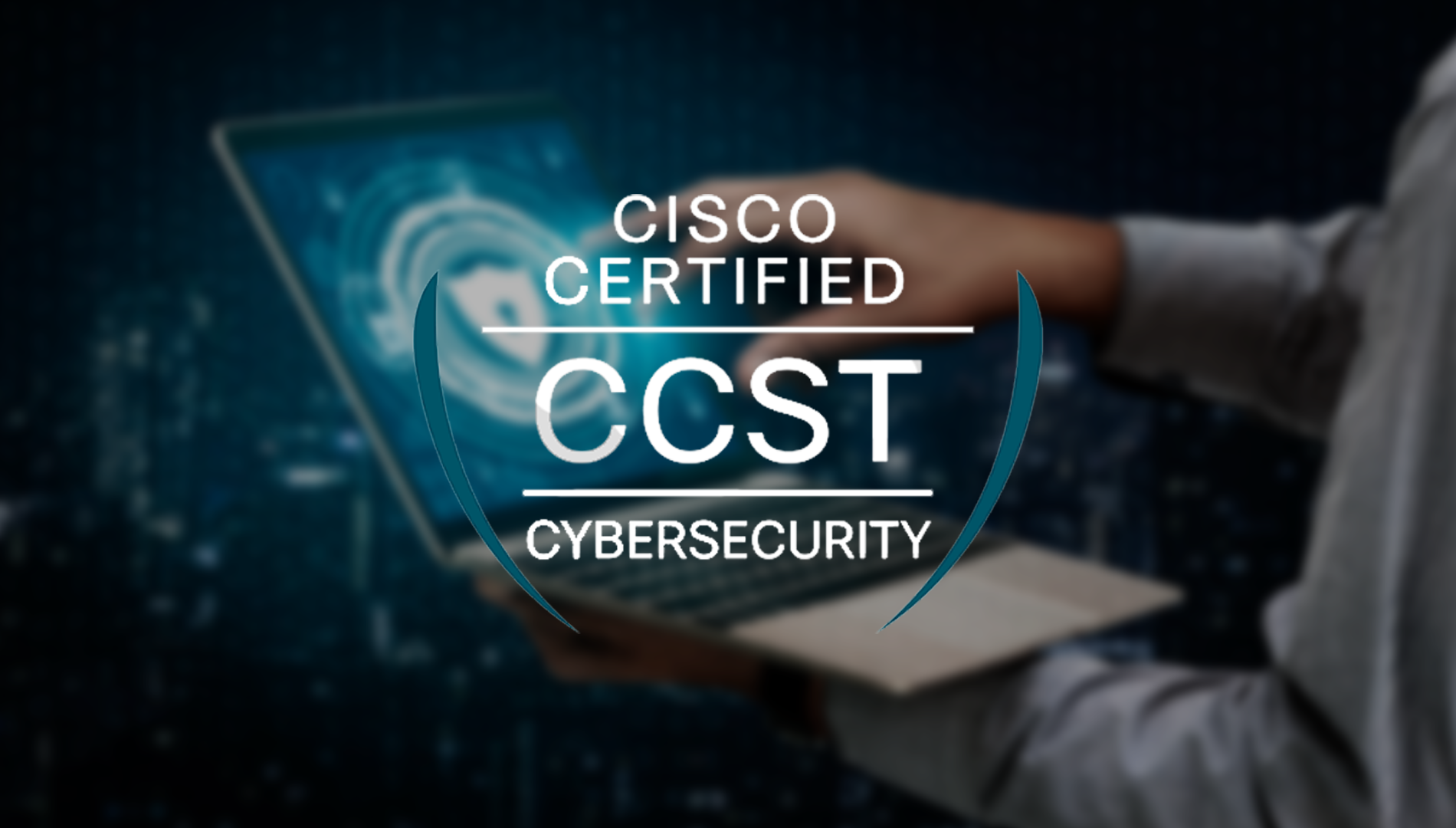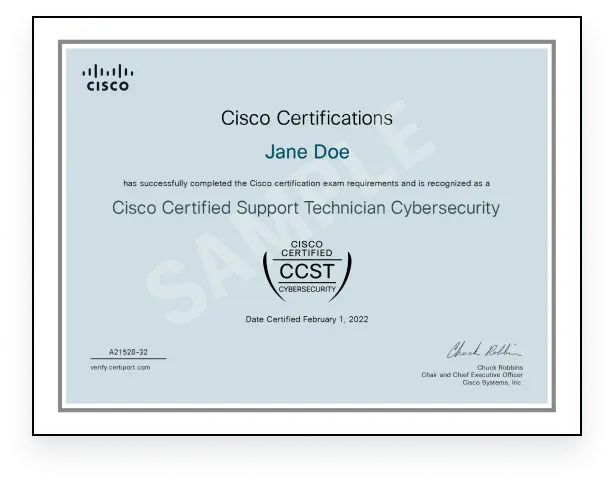Cybersecurity – Cisco Certified Support Technician
Learn cybersecurity essentials, master risk management, and prepare for Cisco CCST certification to launch your IT security career.


Description
The Cisco Certified Support Technician (CCST Cybersecurity course is ideal for anyone new to the field of cybersecurity and is interested in becoming a cybersecurity specialist.
This course covers Security Principles, Network Security Concepts, Endpoint Security Concepts, Vulnerability Assessment and Risk Management, Incident Handling etc.
Mastering these core topics builds a good foundation for passing the exam and becoming a cybersecurity professional.
Want to see what's inside the course?
Exam Details
- Number of Questions - 40-50 (50 Minutes)
- Total Marks : 1000
- Passing Marks : 700
- Practice Test : Up To 10 Attempts
Program Details & Benefits
- Learning Category : Self Paced Online Learning includes Videos, Lab/Assignments, Hands on Practice Test along with Doubt Clearance Session.
- Learning Hours : 23 Hours.
- Language : English.
- Certification : Our Certifications Upon Successful Completion of Online Exams.
- Job : 100% Job Assistance.
Outcomes
- Industry-recognized certification for global job opportunities.
- Enhanced skills for career growth and advancement.
- In-demand expertise for roles in tech and business.
- Access to job placement support and career guidance.
- Preparation for freelancing or entrepreneurial ventures.
You may also like our Career Ready Programs

IBM - Basic Programming for Beginners
60+ Hours
4.9/5

IBM - Full Stack Development Professional Program
60+ Hours
4.9/5

Meta Certified Digital Marketing Associate
60+ Hours
4.9/5

FAQ
Frequently Asked Questions
Our support team will get assistance from AI-powered suggestions, making it quicker than ever to handle support requests.
Cisco certifications offer numerous benefits, including: – Career Advancement: Enhances your qualifications and opens up new job opportunities in networking and IT. – Increased Earning Potential: Certified professionals often command higher salaries compared to their non-certified peers. – Industry Recognition: Cisco certifications are widely recognized and respected in the IT and networking industry. – Skill Development: Gain in-depth knowledge and hands-on skills in Cisco technologies, which are critical for managing and securing network infrastructure. – Professional Growth: Certifications help you stay current with the latest technologies and industry best practices. – Networking Opportunities: Join a community of certified professionals and access exclusive resources and support.
To achieve Cisco certification, you generally need: – Knowledge and Skills: Familiarity with networking concepts, protocols, and Cisco technologies relevant to the certification level. – Training Courses: Enrollment in Cisco-approved training programs or self-study using Cisco study materials. – Exams: Completion of one or more certification exams, depending on the certification level and track. – Prerequisites: Some advanced certifications may require completion of lower-level certifications or relevant work experience.
Cisco certifications are highly valuable for several reasons: – Industry Standards: Cisco certifications are considered industry standards for networking professionals, demonstrating expertise in managing and securing network systems. – Employability: They significantly improve job prospects and are often required for advanced roles in networking and IT. – Skill Validation: Certifications validate your skills and knowledge, making you a more competitive candidate in the job market. – Career Progression: They provide a clear path for career advancement and specialization in various networking areas.
Eligibility for Cisco certification courses typically includes: – Educational Background: No specific educational requirements, though a basic understanding of networking concepts is helpful. – Experience Level: Entry-level certifications like CCNA require little to no prior experience, while advanced certifications like CCNP and CCIE may require relevant work experience or lower-level certifications. – Interest and Commitment: A genuine interest in networking and a commitment to studying and preparing for certification exams.






